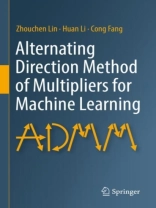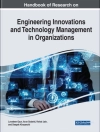Machine learning heavily relies on optimization algorithms to solve its learning models. Constrained problems constitute a major type of optimization problem, and the alternating direction method of multipliers (ADMM) is a commonly used algorithm to solve constrained problems, especially linearly constrained ones. Written by experts in machine learning and optimization, this is the first book providing a state-of-the-art review on ADMM under various scenarios, including deterministic and convex optimization, nonconvex optimization, stochastic optimization, and distributed optimization. Offering a rich blend of ideas, theories and proofs, the book is up-to-date and self-contained. It is an excellent reference book for users who are seeking a relatively universal algorithm for constrained problems. Graduate students or researchers can read it to grasp the frontiers of ADMM in machine learning in a short period of time.
Tabela de Conteúdo
Chapter 1. Introduction.- Chapter 2. Derivations of ADMM.- Chapter 3. ADMM for Deterministic and Convex Optimization.- Chapter 4. ADMM for Nonconvex Optimization.- Chapter 5. ADMM for Stochastic Optimization.- Chapter 6. ADMM for Distributed Optimization.- Chapter 7. Practical Issues and Conclusions.
Sobre o autor
Zhouchen Lin is a leading expert in the fields of machine learning and optimization. He is currently a professor with the Key Laboratory of Machine Perception (Ministry of Education), School of Artificial Intelligence, Peking University. Prof. Lin served as an area chair many times for prestigious conferences, including CVPR, ICCV, NIPS/Neur IPS, ICML, ICLR, IJCAI and AAAI. He is a Program Co-Chair of ICPR 2022 and a Senior Area Chair of ICML 2022. Prof. Lin is an associate editor of the International Journal of Computer Vision and the Optimization Methods and Software. He is a Fellow of CSIG, IAPR and IEEE.
Huan Li received a doctoral degree in machine learning from Peking University in 2019. He is currently an assistant researcher at the School of Artificial Intelligence, Nankai University. His research interests include optimization and machine learning.
Cong Fang received a doctoral degree in machine learning from Peking University in 2019. He is currently anassistant professor at the School of Artificial Intelligence, Peking University. His research interests include optimization and machine learning.












